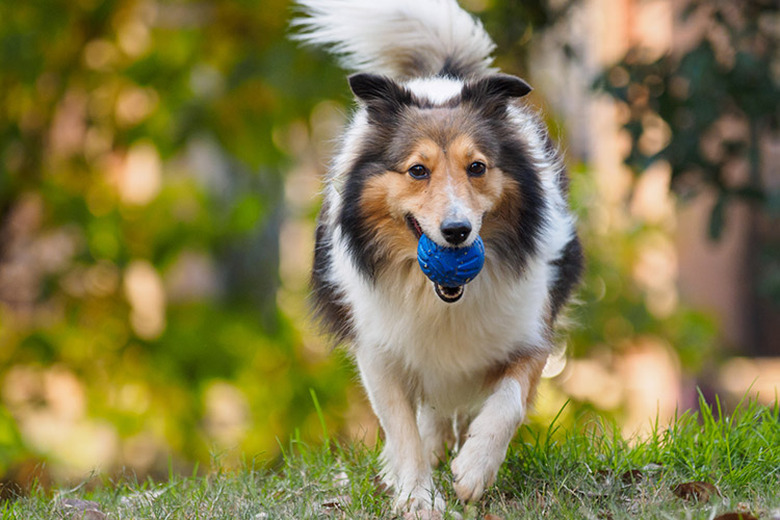Shelties Vs. Collies
Collies and shelties are both descendants of border collies, but they're different dogs. Rough collies have a long, lustrous coat, while smooth collies have a much shorter coat. Shelties are formally called Shetland sheepdogs, and though they look like mini versions of rough collies, they're their own distinct breed.
History
Collies can trace their ancestors to hard-working dogs, going back hundreds of years to Scotland. Early rough collies were smaller than the modern-day variety and worked both as water rescue dogs and for herding and guiding livestock to market. The collie was recognized by the American Kennel Club in 1885. The sheltie is related to the rough collie and also has roots in Scotland, specifically the island of Shetland, where a border collie was crossed with the Icelandic yakkin, now extinct. Shelties were also herders, valued for their ability to gently direct small livestock. The AKC recognized the breed in 1911.
Looks
The collie is a large dog, weighing between 48 and 72 pounds and standing between 22 and 26 inches tall at the shoulder. He strikes a graceful, lean figure, even when he has a full coat. The rough-coated collie has long fur all over most of his body and shorter fur on his head and legs. Though his mane around his neck and chest looks soft, his outer coat is rough to the touch. His undercoat is soft and tight. The smooth collie has the same build, but his coat is more conservative, growing a short inch coat all over. Shelties are much smaller, standing just over a foot tall and weighing up to around 25 pounds. They resemble rough collies with their double coat and coloring and, despite their diminutive size, are sturdy dogs.
Temperament
The collie is an all-around good guy. He's generally mild-mannered and sweet, and good with people, other dogs and the family pets. This fellow still has herding instincts, so he may try to herd children. The collie enjoys time outdoors and responds well to daily walks with his pack. Speaking of his pack, he'll benefit from gentle consistent training to keep him from becoming willful. The sheltie loves human companionship and makes an excellent watchdog. He requires firm training as he is prone to ignoring your commands if he senses you don't mean what you say. He'll respond well to training since he's quite intelligent, which is important to keep him from falling prey to small dog syndrome, where he thinks he rules the roost. This guy's herding instinct is still quite strong, so it's a good idea to give him a job to keep him busy.
Grooming
Both the rough collie and the sheltie require regular grooming to maintain their long, lustrous coats. They'll both shed their undercoats in the spring and fall seasons, so be prepared for extra time brushing or at the groomer, as well as spending a bit more time with the vacuum cleaner.
Health Traits
Both of these guys can lead long lives, up in the 15-year range. Shelties are prone to overheating, eye problems and hyperthyroidism. Collies are sensitive to heat as well, including sunburn. Some collies suffer from hip problems, which can lead to arthritis or acute lameness.
By Betty Lewis
References
Dog Breed Information Center: Shetland Sheepdog
Dogster: Shetland Sheepdog
Dog Breed Information Center: Collie, Rough and Smooth
Dogster: Collie Dogs
American Kennel Club: Get to Know the Collie
American Kennel Club: Get to Know the Shetland Sheepdog
About the Author
Betty Lewis has been writing professionally since 2000, specializing in animal care and issues, business analysis and homeland security. Lewis holds a bachelor's degree in journalism from West Virginia University as well as master's degrees from Old Dominion University and Tulane University.
